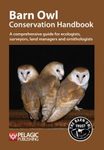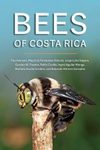![Vultures of the World Vultures of the World]()
Click to have a closer look
About this book
Customer reviews
Biography
Related titles
About this book
As Vultures of the World shows, few avian groups are as widely recognized, but as little understood as are vultures and condors.
Keith L. Bildstein's latest work is an inspirational and long overdue blend of all things vulture. Based on decades of personal experience, dozens of case studies, and numerous up-to-date examples of cutting-edge science, this book introduces readers to the essential nature of vultures and condors. Not only do these most proficient of all vertebrate scavengers clean up natural and man-made organic waste, but they also recycle ecologically essential elements back into both wild and human landscapes, allowing our ecosystems to function successfully across generations of organisms. With distributions ranging over more than three-quarters of all land on five continents, the world's twenty-three species of scavenging birds of prey offer an outstanding example of biological diversity writ large.
Included in the species fold are the world's most abundant large raptor, several of its longest-lived, and the most massive of all soaring birds. With a fossil record dating back more than 50 million years, vultures and condors possess numerous adaptions that characteristically serve them well, but at times also make them particularly vulnerable to human actions. Vultures of the World is a truly global treatment of vultures, offering a roadmap of how best to protect these birds and their important ecology.
Customer Reviews
Biography
Keith L. Bildstein is the former Sarkis Acopian Director of Conservation Science at the Acopian Center for Conservation Learning, Hawk Mountain Sanctuary. He is the author of Raptors, Migrating Raptors of the World, White Ibis and coauthor of The Raptor Migration Watch-Site Manual and Raptor Watch. He is also co-editor of many books, including most recently, The State of North America's Birds of Prey.
By: Keith L Bildstein(Author)
252 pages, 8 plates with 23 colour photos
"This is the first scientifically-grounded, engagingly-told review of the ecology and conservation of the iconic bird group we know as vultures. No other book has come close to the depth, scope, and intrigue of Vultures of the World."
– Allen Fish, Director, Raptor Observatory, Golden Gate National Parks Conservancy
"A treasure-trove of important information for both those that already love vultures and those that surely will after reading this book."
– Munir Virani, Executive Vice President of The Peregrine Fund



































